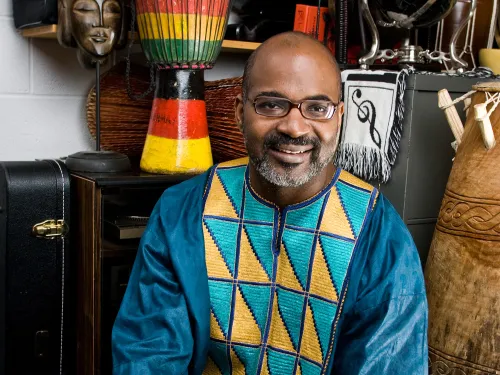Find a Faculty Member
Faculty Spotlights

Andy Smith
Professor, Biology
With help from some slimy slugs, biology professor Andy Smith won game show podcast Tell Me Something I Don’t Know.
Read On

Nia Nunn
Associate Professor, Department of Education
In the heart of Ithaca, associate professor Nia Nunn and a team of IC grad students welcome children into a safe space for open discussions.
Read On

Baruch Whitehead
Associate Professor, Music Education
IC associate professor Baruch Whitehead helps keep the traditional "Negro Spiritual" alive with the Dorothy Cotton Jubilee Singers.
Read On